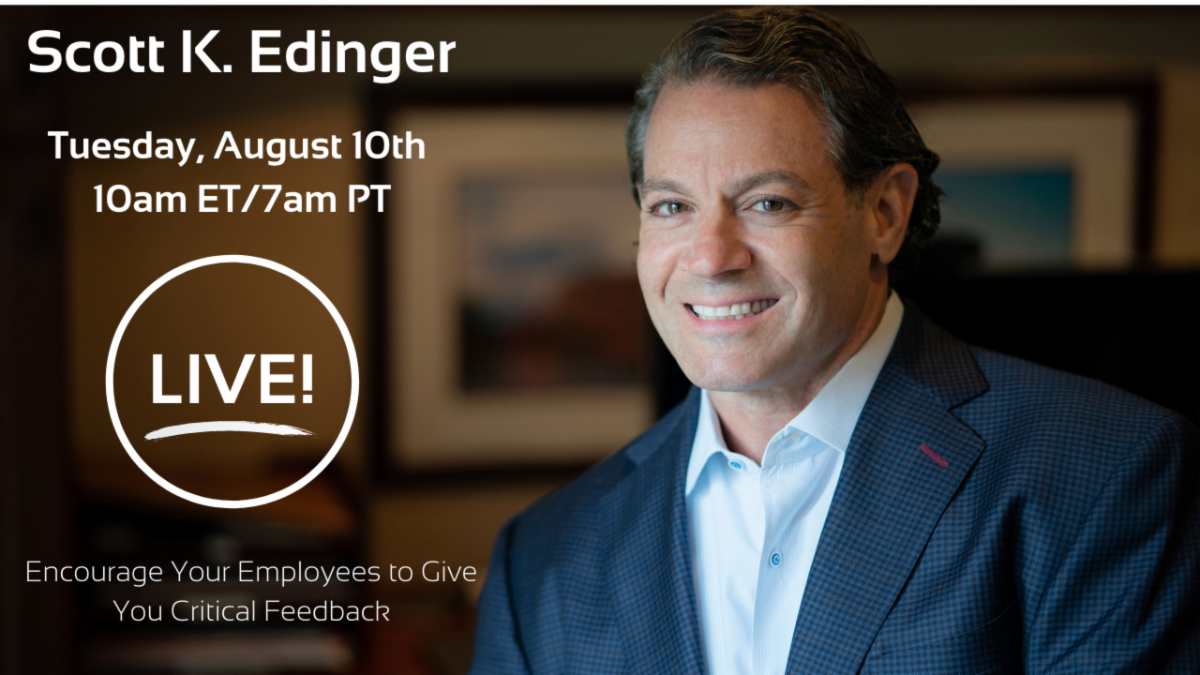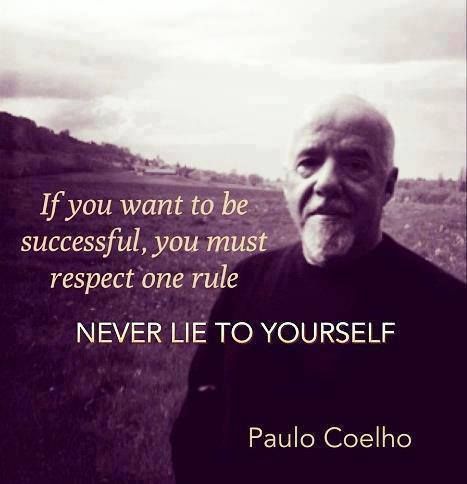
August 5, 2021
Encourage Your Employees to Give You Critical Feedback: What I’d Add to Making Yourself Indispensable
It’s been 10 years since I co-authored the HBR article “Making Yourself Indispensable.” At the time, the editors at HBR promoted it as a “classic in the making.” It’s been reprinted several times, most recently in the Spring special edition. As I reread it, I identified a few things I wanted to add. So, I wrote another article, which was originally titled “What I’d Add to Making Yourself Indispensable” but was published last week as Encourage Your Employees to Give You Critical Feedback.
The article focuses on the use of the informal 360 as a means of getting meaningful feedback and the value it brings to leadership relationships. While 360-degree surveys can be useful, I’ve heard from hundreds of leaders that the quantitative scores meant little to them and the reports lack depth and specificity in comments. In contrast, getting feedback informally and directly can be extremely valuable. But it’s difficult. I’ve seen leaders do it well and also make some critical errors.
There are two key things leaders must remember to get the most out of an informal 360. First, you will need to put forth a great deal of effort in order to get others to tell you the truth about your leadership. Sharing candid feedback doesn’t come easily for people, so be prepared to really work for it. Second, focus on building mutual trust during informal feedback conversations. This will shift how people perceive feedback and discuss performance, and over time, improve work relationships.
Read the full article here to learn more about how you can use the informal 360 to gather candid feedback from colleagues and make yourself indispensable.
Interested in learning more about getting feedback at work? You may find these articles of value:
You Are Not the Best Judge of You
Learn to Solicit Feedback...from Your Kids
Why Tinkering with Your Comp Plan Doesn’t Get You Better Results
I frequently hear about the disappointment executives feel about the results from their sales team.
It’s almost Pavlovian that one of the first areas that gets adjusted as a means to drive change is the compensation plan. It’s common because of an often-faulty assumption that simply motivating sales people with money will improve their performance. I worked at a company where the CEO was constantly redesigning the comp plan. It rarely had a lasting impact. Here is why:
Money can increase effort and redirect focus, but it won’t make people better at their work.
What if someone offered me a million dollars, and all I had to do in return was dunk a basketball six months from now? I would be excited and even motivated to practice every day and give a lot of effort. But it’s very unlikely that in six months I could do the dunk. At that point, it may even feel demoralizing because regardless of the incentive, I still don’t have the skill required to get the job done.
And this is the linchpin for why comp plan adjustments are good for driving additional focus and effort, but don’t often produce significant change. Because compensation can’t:
- Ensure that people on your team are in the right roles.
- Direct or lead people to do the right things.
- Develop and enhance your team’s skills.
- Evaluate your team with the right metrics.
Only the hard work of leadership – establishing high standards and working diligently toward their achievement can create the results you want. Don’t look to the comp plan as a silver bullet to motivate and drive success. Of course it is an influencing factor, but only that. Find a solution that works on building a high-performance team and putting people in the right positions. This will give you the results you are looking for.
Are you looking at building a high-performance team? Read Building a High-Performance Solution Sales Organization.
A Thought About Persuasion
People are more likely to believe what they think than what you say. This is another one of Edinger’s Laws of Communication, which I’ll someday publish in full. This one is valuable because it’s a reminder that if you want to influence someone else, then you’d be well served to first listen to them fully. That includes listening to what you may think are incomplete, illogical, and ill-founded ideas, without shutting them down. It may be frustrating to do this, but if the principle holds, and it usually does, then knowledge is power. It's doubly powerful if you can express your understanding of someone else’s perspective more succinctly and clearly than they can themselves. Once you’ve done that, you have an opportunity to share your perspectives and likely a more productive conversation.
LinkedIn Live
Join me on Tuesday, August 10th at 10 am Eastern as we discuss encouraging your employees to give you critical feedback.

Currently Reading: How to Say No to Grabbing Coffee
Just because you can socialize or take on another commitment doesn’t mean you should. Each time you receive an invite, you have numerous competing priorities: what you actually want, how you want the person to feel, and how you feel about the person. When you get an invitation, it can be tempting to automatically say yes, without considering your priorities. One way to ensure alignment between your values and the way you spend your time is to solidify your values before the request lands in your inbox. What is important to you this week, this quarter, and beyond?
The pandemic has given us an opportunity to step back and think critically about how to spend our time. If a request comes that isn’t in alignment with your priorities, it’s okay to say no. Saying no to one thing gives you the space to say yes to something else.
To read more about managing your social calendar and saying no to “grabbing coffee,” check out this week’s read.
Quotable


